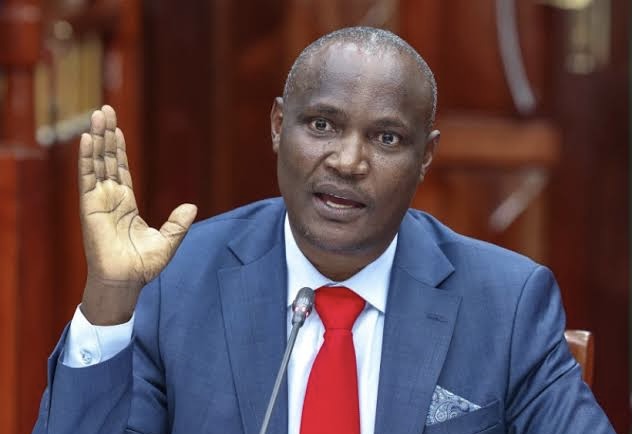Written by Faith Mwende
National Treasury Cabinet Secretary John Mbadi has expressed optimism about the transparency of the ongoing governance diagnostic project being undertaken with support from the International Monetary Fund (IMF).
Speaking about the initiative, Mbadi assured that the final findings of the assessment would be made public once complete.
The project, launched at the request of the Kenyan government, seeks to uncover critical gaps in the country’s governance systems and propose actionable reforms.
Mbadi noted that Kenya’s engagement with the IMF in this context aligns with global best practices, describing it as a common step taken by many countries to strengthen institutional accountability and improve fiscal management.
“This is not unusual. Governments across the world have turned to the IMF for governance diagnostics to enhance their systems. The IMF is known for helping countries stabilise and improve their economic frameworks,” Mbadi explained.
The initiative has drawn close attention from civil society organisations, who see it as an opportunity to restore credibility and trust in Kenya’s governance.
Diana Gichengo, Executive Director at The Institute for Social Accountability (TISA), stressed the significance of the diagnostic, especially in light of past concerns about the effectiveness of IMF-supported reforms in Kenya.
“For the IMF to restore its legitimacy here, it must deliver a governance review that reflects the true picture—one that goes beyond numbers and into structural accountability,” Gichengo stated, noting that credible sources such as the Auditor General, EACC, Controller of Budget, and civil society will inform the findings.
Despite general support, there are emerging concerns over the possibility of government influence skewing the report’s integrity. Gichengo cautioned against attempts to whitewash issues, warning that any manipulation of results could undermine the entire exercise.
“Our reputation in global finance is already fragile—we’re viewed as reckless spenders with weak accountability,” she remarked.
Dr Abraham Rugo, Executive Director of Bajeti Hub, echoed the concerns, pointing out that much of the governance data the IMF might collect is already available through Kenyan audits and reports.
However, he emphasised that the impact of the initiative would ultimately hinge on genuine political commitment to reform.



















